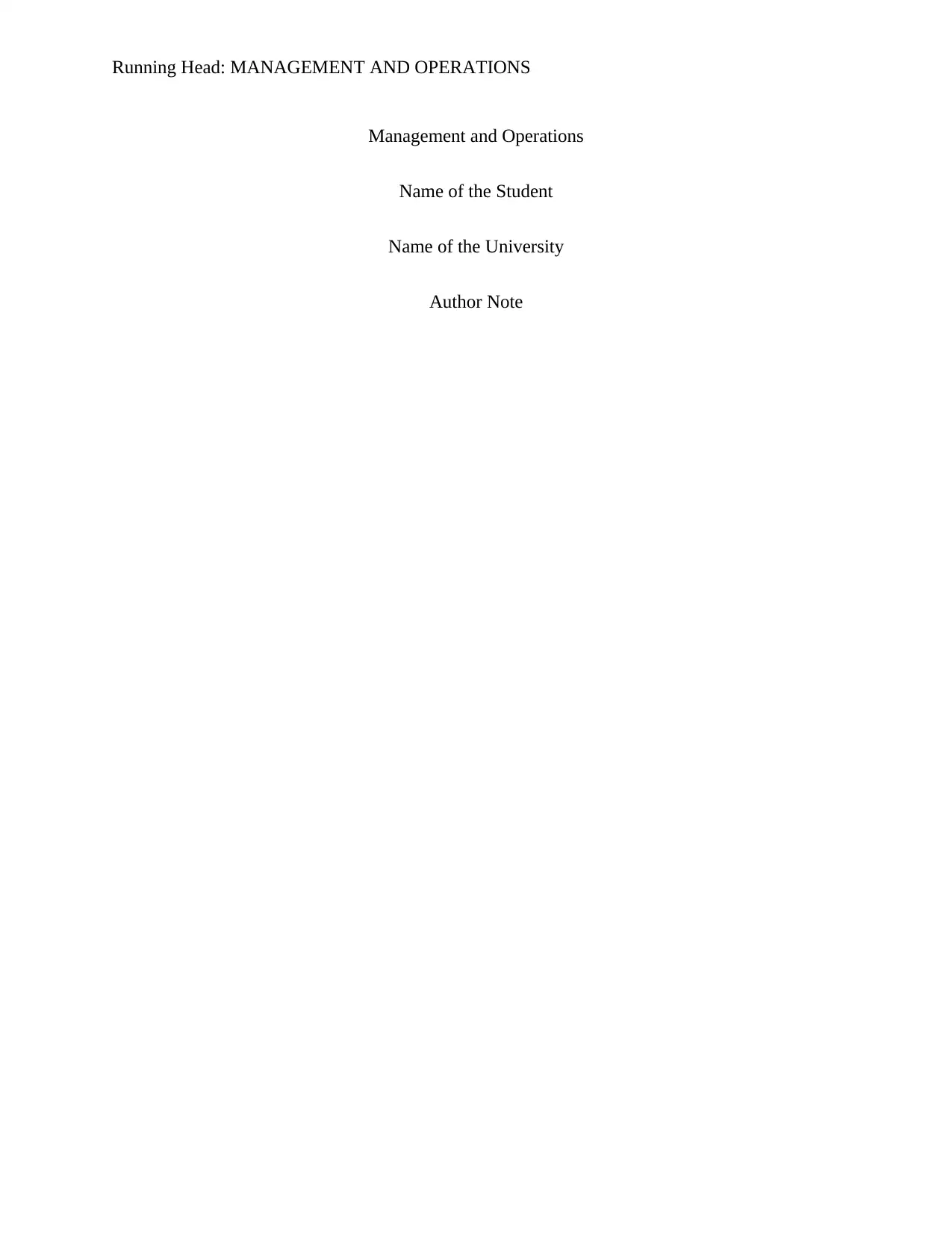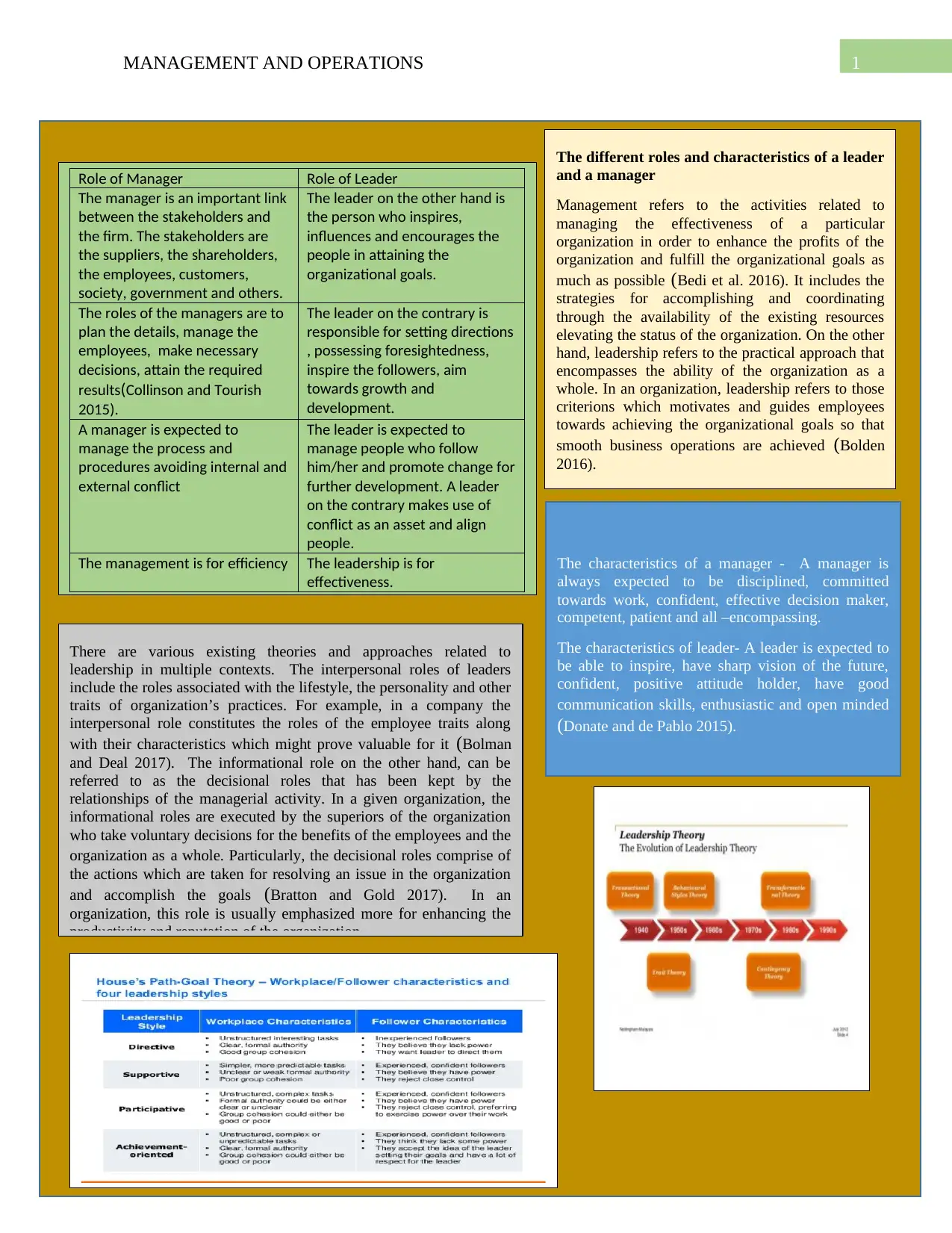BTEC HND Business Unit 4: Management and Operations Analysis Report
VerifiedAdded on 2023/04/20
|2
|582
|81
Report
AI Summary
This report, prepared for a BTEC HND in Business Unit 4, examines the distinct roles and characteristics of leaders and managers within an organizational context. It differentiates between the functions of a manager, who focuses on efficiency through planning, employee management, and decision-making, and a leader, who inspires and influences to achieve organizational goals, fostering growth and change. The report explores interpersonal and informational roles, highlighting the importance of both leadership and management for organizational success. It also contrasts key characteristics such as discipline, confidence, and decision-making skills for managers, with vision, communication, and enthusiasm for leaders. The report emphasizes how management enhances profits through effective resource coordination and strategy, while leadership motivates employees towards achieving organizational goals.
1 out of 2






![[object Object]](/_next/static/media/star-bottom.7253800d.svg)